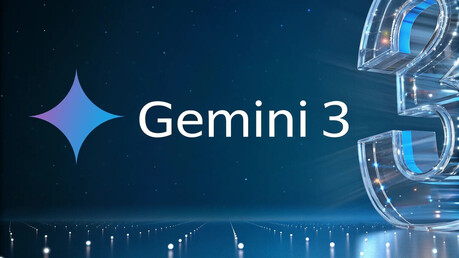
The fundamental principle of taxation, often summarized as "where there is income, there is tax," carries an intuitive weight. Yet, the intricacies of tax law frequently reveal exceptions and distinctions that can puzzle even seasoned financial observers. The South Korean tax system, like many others, operates with specific categorizations of income and assets, leading to scenarios where profits from certain transactions are taxed while others, seemingly similar in nature, are exempt. The recent surge in gold prices has brought one such distinction into sharp focus, prompting many to question the tax implications of selling privately held gold.
The Korean tax code delineates taxable income streams with considerable precision. For instance, profits derived from the sale of real estate are subject to capital gains tax, reflecting the substantial value and potential for significant gains associated with property transactions. Similarly, profits from the transfer of stocks, beneficial certificates of trusts, and derivative financial instruments are also within the purview of capital gains taxation. This explicit listing means that income generated from sources not specifically enumerated in the tax law may fall outside the capital gains tax net, even if a tangible profit is realized.
One notable example highlighted in recent discussions is the treatment of profits from investments in virtual assets. Currently, in South Korea, capital gains from cryptocurrency trading are not subject to income tax. This exemption, often debated and subject to potential future legislative changes, stands in contrast to the taxation of more traditional asset classes like real estate and stocks. Such discrepancies underscore the importance of understanding the specific legal definitions and classifications that underpin the tax system.
The escalating value of gold has further complicated the tax landscape for individuals holding physical gold. Many Koreans, whether possessing inherited jewelry, bullion stored for investment purposes, or gold acquired through other means, are now contemplating the optimal timing and method for its disposal. A central question arising from this situation is whether the profit realized from selling privately held gold, often kept in personal safes or "closets," is subject to capital gains tax.
According to the current South Korean tax regulations, the answer to this question is generally no. Physical gold, in its tangible form, is not explicitly listed as a capital asset subject to capital gains tax under the Income Tax Act. Therefore, an individual who sells gold bars, coins, or jewelry they have personally held is typically not required to pay capital gains tax on any profit derived from the sale. This exemption applies regardless of the duration of ownership or the magnitude of the profit.
However, this tax-free status applies specifically to the sale of physical gold itself. The tax treatment differs for financial products linked to gold prices offered by domestic financial institutions. Instruments such as gold banking accounts and gold-linked Exchange Traded Funds (ETFs) are classified as financial products rather than direct ownership of physical gold. Profits generated from these instruments, whether through dividends or capital gains from trading, are typically subject to taxation as dividend income or other forms of income tax, depending on the specific nature of the product and the applicable tax laws governing financial instruments. This distinction highlights the crucial role of asset classification in determining tax liabilities.
While the sale of physical gold is generally exempt from income tax, the transfer of gold through inheritance or as a gift falls under a different tax regime: inheritance and gift tax. Unlike income tax, which operates on a specifically enumerated list of taxable items, inheritance and gift tax adopts a more comprehensive definition, encompassing all items of economic value. Consequently, if gold is transferred from one individual to another as part of an inheritance or as a gift, the recipient is, in principle, liable for inheritance or gift tax on the value of the gold received. The valuation of the gold for tax purposes would typically be based on its market price at the time of the transfer.
The contrasting tax treatments of physical gold sales versus gold-linked financial products and inherited/gifted gold underscore the nuanced nature of the South Korean tax system. Individuals considering transactions involving gold, whether selling, investing, or transferring ownership, should be mindful of these distinctions to ensure compliance with tax regulations. Consulting with tax professionals can provide clarity and guidance tailored to individual circumstances.
The broader context of asset taxation in South Korea reveals ongoing debates and potential future changes. The current exemption of capital gains tax on virtual assets, for instance, has been a subject of considerable discussion, with arguments both for and against its continuation. The rationale behind the specific listing of capital assets subject to income tax often involves considerations of administrative feasibility, economic impact, and fairness. Taxing certain widely held and frequently traded assets like real estate and stocks is seen as essential for revenue generation and equitable distribution of the tax burden.
The exemption of capital gains on privately held physical gold might be attributed to factors such as the relatively less frequent trading volume compared to other asset classes and the practical challenges of tracking and taxing individual sales of personal property. However, as the value of gold continues to fluctuate and its role as an investment asset gains prominence, the tax treatment of gold, along with other less conventional assets, may be subject to future review and potential legislative adjustments.
In conclusion, while the act of selling physical gold stored in one's closet is currently exempt from capital gains tax in South Korea, it is crucial to distinguish this from investments in gold-linked financial products, which are typically taxed as income, and the transfer of gold through inheritance or gifts, which are subject to inheritance and gift tax. The South Korean tax landscape is dynamic, and understanding the specific classifications and regulations governing different asset types is essential for individuals navigating their financial decisions. As the economy evolves and new forms of wealth emerge, the tax laws will likely continue to adapt, requiring ongoing awareness and informed decision-making.
[Copyright (c) Global Economic Times. All Rights Reserved.]





























